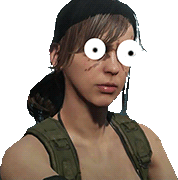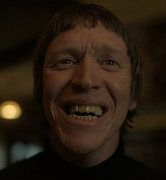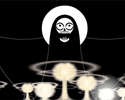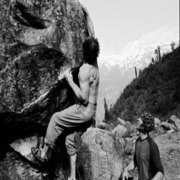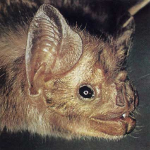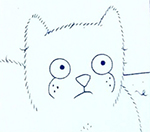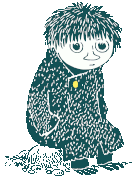|
Isaac Babel's short stories are fantastic. I would strongly recommend the Red Cavalry series; Babel was a commissar in the Red Army during the Polish War, and that inspired him to write these little vignettes of life among Cossack cavalry raiders and soldiers. He mixes tragedy, comedy, and political commentary masterfully. Of course, he was shot once Stalin came to power.
|
|
|
|

|
| # ? Apr 24, 2024 01:51 |
|
Smiling Knight posted:Isaac Babel's short stories are fantastic. I would strongly recommend the Red Cavalry series; Babel was a commissar in the Red Army during the Polish War, and that inspired him to write these little vignettes of life among Cossack cavalry raiders and soldiers. He mixes tragedy, comedy, and political commentary masterfully. Of course, he was shot once Stalin came to power. He was also a personal friend of (or was at least published by) Maxim Gorky, iirc.
|
|
|
|
I just finished reading Life and Fate by Vasily Grossman. What an incredible book that was. It moves so easily back and forth from the mundane through the philosophical and back to the mundane, helps to appreciate the deep meaning that surrounds us in everyday life. And the chapters where Stalin and Hitler are featured as characters are mindblowingly original and interesting. And the whole novel: a demonstration of how people fight against adversity and hardship, and find their individual place against the collective. Life and fate themselves are themselves part of that struggle - how do we live up to, or defy, our fates? I'm not really doing this book justice at all. Read it. You won't regret it.
|
|
|
|
Currently in love with Anna Karenina
|
|
|
|
DangerousDan posted:Bit of a shame Zamyatin hasn't been mentioned yet. If you want to see a prophecy of Stalinist conformity before it actually came to pass (posterity is much easier to write from, Mr. Orwell), check out We. Dystopianism at its best. You're the first person I've met who has read We let alone heard of it. I was trying to recall Zamyatin's name when I came upon this thread. I still don't know why we have it at home as I'm pretty sure neither of my parents had ever read it. I used to read a bunch of Russian literature when I was in high school. You know, Tolstoy, Dostoyevsky, Turgenev, Pushkin and Chekhov mostly. I'm not sure I could tell you the exact plotlines of most of them now as it's been almost a decade. I bet there were lots of nuances that I missed or was too stupid to understand. I ought to read War and Peace again at least. Gogol and Solzhenitsyn were authors I meant to read but I think I'd moved on to French literature at that point...
|
|
|
|
Octy posted:You're the first person I've met who has read We let alone heard of it. I was trying to recall Zamyatin's name when I came upon this thread. I still don't know why we have it at home as I'm pretty sure neither of my parents had ever read it. A lot of people know about We because it was a direct influence on Ayn Rand.
|
|
|
|
Very loose use of the word "met" there.
|
|
|
|
I've finished Brothers Karamazov and m verdict is this book is long.
|
|
|
|
HighClassSwankyTime posted:Currently in love with Anna Karenina I'm going to pick this up today after reading Faulkner's ratifying appraisal. (lol) I'm nearly done with The Eye (Nabokov) which has been less a detective tale than I had initially suspected for whatever reason. Genuinely enjoying the latter half.
|
|
|
|
Crime and Punishment is one of my favorite books- I re-read it every couple of years- but I've only ever read the Constance Garnett translation. Since I lent it to a girl who then moved away without giving it back, and it's time for me to re-buy it anyway, are there any strong recommendations for an alternative translation?
|
|
|
|
CestMoi posted:I've finished Brothers Karamazov and m verdict is this book is long. It made me hungry for pancakes. I also learned from it that all women are insane. Meaty Ore fucked around with this message at 03:11 on Aug 3, 2014 |
|
|
|
CestMoi posted:I've finished Brothers Karamazov and m verdict is this book is long. I think the Brothers Karamazov has the longest Wikipedia summary I ever read
|
|
|
|
I'm busy going through the modern library collection of Tolstoy's short fiction at the moment. It's got two volumes, one is his early work and the second is his later stuff. It's pretty worthwhile reading, especially because it really shows how a lot of his ideas and themes got developed in shorter fiction before becoming part of his novels. The three "Sevastopol Sketches," even though they're about the Crimean War, are really reminiscent of "War and Peace." His novella "Family Happiness," much like "Anna Karenina," is an exploration of how a happy marriage should work. Some of his religious ideas actually come across clearer in short works than in his novels. If you like Tolstoy at all it's probably worth your time.
|
|
|
|
I finished War & Peace a week ago. Satisfying read, but I really could have done without the treatise on history because I am intellectually lazy. I suppose the idea that history needs to be explored thoroughly and not merely through the lenses of "greatness" and "power" was fairly novel, but I digress (as I likely did not understand a great deal of it). Quick question about the end of the narrative: Tolstoy is alluding that Pierre and Nikolenka will likely join the Decembrists, yes? And if so, with whom does Tolstoy side? Pierre or Nikolai, who challenges Pierre's notion that it is the government that corrupts. Is Pierre yet again carried away by naive optimism? Has he completely forgotten about the lessons bequeathed by Karatev that contentment can be attained through living in the moment and simply? It just seems as if Pierre's transformation, other than the contentment he finds in family, is so ephemeral. Whereas Nikolai actually does seem to undergo profound change and, like Karatev, lives by instinct rather than reason; attaining happiness through simplicity I think the next time I tackle this one, I'll have to avoid reading it simultaneously with other novels. rest his guts fucked around with this message at 00:03 on Aug 12, 2014 |
|
|
|
I have another vexing question from the second part of the epilogue that I would like answered about Tolstoy's views on free will. Tolstoy asserts that what we know of life can be understood as some interaction between the forces of freedom (consciousness) and necessity (reason) (the precise interaction is unknown). My understanding is that the conjunction of these two forces is the essence of the life of man. Later, he goes on to explain that there is no great disparity between the laws of reason (he specifically cites an argument made by Voltaire) and religion, and in fact reason corroborates religion. I really didn't follow this argument at all. Finally, he arrives to the conclusion that if history is to be understood scientifically (as it should be); the concept of freedom (though it exists) must be completely excised from the study and that we must cease to search for causes (as the cause and effect chain is endless, beginning and ending with time) but rather search for laws. The search for natural laws necessitates the exclusion of the concept of freedom because to include it would create a paradox, insofar as he understands freedom as a force independent of law. The final sentence "... it is just as necessary to renounce a nonexistent freedom, and recognize the dependency we do not feel" only adds to my confusion as, not three pages prior, he adamantly argues that consciousness of freedom is at least part of the essence of human life. Does he mean to suggest that, solely for the sake of history, we must abandon the concept of freedom, that it does not exist? Please clarify, smart Tolstoy scholar-goons. rest his guts fucked around with this message at 19:12 on Aug 17, 2014 |
|
|
|
I've heard great things about Isaac Babel too, especial re: The Red Calvary stuff. As a jew, he had to hide his ethnicity from his rabidly anti-Semitic cossack comrades.
|
|
|
|
Oxxidation posted:I found Tolstoy and Dostoyevsky to be horrible, pious bores but Sigizmund Krzhizhanovsky was a neato find in my local library. Early surrealist, not a very robust bibliography, but possessed of a great imagination and a sense of fun that comes through even in translation. I can't say I share your opinion about Tolstoy and Dostoyevsky but The Letter Killers Club is fantastic. I found Krzhizhanovsky's short story collections (Memories of the Future and Autobiography of a Corpse) to be good as well but less interesting overall. mdemone posted:Has anyone else read the Ice trilogy by Sorokin? I'd love to hear what others think of it because it continues to thwart my efforts at evaluation. A very singular work, to say the least. This book is crazy and I really enjoyed it. I definitely agree that it defies attempts to pick it apart easily. I've read The Queue by him as well. I didn't like it as much as Ice but it is totally unique, unlike anything I've ever read. I read a lot of Russian lit and my favorite novel (period, not just Russian) is Envy by Yury Olesha. It has a lyrical, almost poetic, style to it that makes it a pleasure just to read how he plays with words and the ideas it presents are both subtle and complex. It is pretty shocking in retrospect that it made it past the Soviet censors but read at a <i>very</i> superficial level it does seem to advocate the attempts at societal transformation of the Communists. Perhaps just because of the more individualistic society I've been raised in it is much easier to identify with the (perhaps insane?) "antagonist" who is preaching and fighting against the mechanization of society in favor of the realm of human feelings and the individual rather than his bureaucrat brother.
|
|
|
|
novamute posted:I can't say I share your opinion about Tolstoy and Dostoyevsky but The Letter Killers Club is fantastic. I found Krzhizhanovsky's short story collections (Memories of the Future and Autobiography of a Corpse) to be good as well but less interesting overall. I read Envy a while back and will second it. What I remember of it is that it has a really pitiable protagonist who says a lot of things that are outwardly funny but end up really pathetic and tragic taken together. (see: most of the scenes involving sausage) It's pretty E/N! Mind that these are my lingering impressions from six years ago. By the way, it's also pretty short if anyone was on the fence for that reason.
|
|
|
|
DangerousDan posted:Bit of a shame Zamyatin hasn't been mentioned yet. If you want to see a prophecy of Stalinist conformity before it actually came to pass (posterity is much easier to write from, Mr. Orwell), check out We. Dystopianism at its best. thehoodie posted:I just finished reading Life and Fate by Vasily Grossman. What an incredible book that was. It moves so easily back and forth from the mundane through the philosophical and back to the mundane, helps to appreciate the deep meaning that surrounds us in everyday life. And the chapters where Stalin and Hitler are featured as characters are mindblowingly original and interesting. And the whole novel: a demonstration of how people fight against adversity and hardship, and find their individual place against the collective. Life and fate themselves are themselves part of that struggle - how do we live up to, or defy, our fates? Fly McCool posted:I finished War & Peace a week ago. Satisfying read, but I really could have done without the treatise on history because I am intellectually lazy. I suppose the idea that history needs to be explored thoroughly and not merely through the lenses of "greatness" and "power" was fairly novel, but I digress (as I likely did not understand a great deal of it). My favorite "IF ONLY!" in Russian lit as far as sequels/follow-ups go, Dostoevsky was going to write another Brothers K book where Alyosha tried to (or maybe successfully?) assassinate the Tsar. Seriously. Let's just say that would have been way better than the 2nd/3rd books of Dead Souls, which would have been dreadful. bearic fucked around with this message at 03:33 on Sep 2, 2014 |
|
|
|
Currently reading Oblomov by Ivan Goncharov. He came out of bed on page 45, and on page 73 he's still lying on the sofa "comtemplating". Loving it so far.
|
|
|
|
HighClassSwankyTime posted:Currently reading Oblomov by Ivan Goncharov. He came out of bed on page 45, and on page 73 he's still lying on the sofa "comtemplating". Loving it so far. Goncharov is great, though I find Oblomov to be somewhat overrated. The Precipice is probably his strongest literary work, though I'm starting to work though A Common Story. His travelogues are great though. (The Frigate Pallas)
|
|
|
|
I have a problem. I love what I have read by the Strugatsky brothers: Roadside Picnic, Definitely Maybe, Hard to Be a God. Yet at the same time I think I feel like there is something I don't 'get' about them. Like some bit of context or subtext that seems just out of reach. Can you guys help? We could start with the more popular Roadside Picnic. What are some interpretations of the novel? I need help.
|
|
|
|
Is mentioning Sergei Lukyanenko gonna get me thrown out of the thread?
|
|
|
iron_weasel posted:I have a problem. I love what I have read by the Strugatsky brothers: Roadside Picnic, Definitely Maybe, Hard to Be a God. Yet at the same time I think I feel like there is something I don't 'get' about them. Like some bit of context or subtext that seems just out of reach. Can you guys help? We could start with the more popular Roadside Picnic. What are some interpretations of the novel? I need help. If I remember correctly, Roadside Picnic is a pretty straightforward sci-fi with the ending being purposely vague about how much irony the character is using with his final proclamation. edit: If you want a really weird Strugatsky book, try Searching for Destiny. anilEhilated fucked around with this message at 23:14 on Dec 25, 2014 |
|
|
|
|
He writes relatively short stories and books but I've never read a bad book by Sergei Dovlatov Here's a link to Canadian writer David Bezmogis reading his short 'The Colonel Says I Love You' from 'Us: a Russian Family' which is awesome, as his is semi autobiographical account of being a prison guard, The Zone. http://podbay.fm/show/256945396/e/1246999958?autostart=1
|
|
|
|
Chekhov is my favorite. His longer, older stories are more well known, but he wrote a lot of really funny and interesting stuff earlier in his career. 'Oysters', 'From the Diary of a Violent-Tempered Man', and 'A Dreadful Night (or Terrible Night, depends on translation) are all awesome.
|
|
|
|
Smiling Knight posted:. Of course, he was shot once Stalin came to power. I recommend Andrei Platonov's The Foundation Pit. It's a great anti-Stalinist dystopian satire, but more importantly it has a talking bear who hunts kulaks.
|
|
|
|
Thanks for the recommendation on translations! I'm clueless and would have bought the first kindle edition I found of Hadji Mura(d?t?) which apparently might be a crappy translation after reading some reviews. I ended up buying the Pevear and Volokhonsky collection The Death of Ivan Ilyich and Other Stories on iBooks since I couldn't find a digital version on Amazon
|
|
|
Smoking Crow posted:Solzhenitsyn is a treasure you shut your hole. You really take this whole "Russian as gently caress" gimmick too far, my friend.
|
|
|
|
|
vegaji posted:My favorite "IF ONLY!" in Russian lit as far as sequels/follow-ups go, Dostoevsky was going to write another Brothers K book where Alyosha tried to (or maybe successfully?) assassinate the Tsar. I'd love to hear more on this. How does this make any sense? Was I totally missing some kind of political subtext from the novel? Recently got some of Tolstoy's religious writings in a collection. I'd read "The Kingdom of God is Within You" before so I'm looking forward to more of his thoughts. His pacifist ideas and lack of concern for metaphysics is pretty interesting.
|
|
|
|
Barlow posted:I'd love to hear more on this. How does this make any sense? Was I totally missing some kind of political subtext from the novel? If not, this will do: http://booksandjournals.brillonline.com/content/journals/10.1163/187633106x00032?crawler=true
|
|
|
|
Any opinions on the best translation of Bely's Petersburg?
|
|
|
|
vegaji posted:Read this if you have university access: http://www.waggish.org/2010/dostoevskys-sequel/ You've got these flipped around, good stuff though.
|
|
|
|
Barlow posted:You've got these flipped around, good stuff though. Old Ash posted:Any opinions on the best translation of Bely's Petersburg? 
bearic fucked around with this message at 17:20 on Jan 16, 2015 |
|
|
|
That's exactly the kind of response I was hoping for! Thanks. Just put in an order for the Maguire.
|
|
|
|
Fly McCool posted:Later, he goes on to explain that there is no great disparity between the laws of reason (he specifically cites an argument made by Voltaire) and religion, and in fact reason corroborates religion. I really didn't follow this argument at all. I haven't read War and Peace, and I know his viewpoint on the world had a drastic shift between War and Peace and even Anna Karenina, let alone his religious writings. But I read this compilation of his religious writings, and in one of them he quotes a french philosopher on the definition of religion. I'd assume it's in "What is Religion," but I flipped through that trying to find the original author and couldn't find it again. The quote defines religion as the relation a person defines between their finite life and the infinite universe. As far as he was concerned, there could be no thinking person who didn't have a religion. He sort of blurred the line between philosophy and religion that way. His belief was that religious belief should stand up to logical analysis, which is why his religious works are more of a series of arguments rather than appeals to the authority of the bible. His insistence on rationality is what led him to be excommunicated. He couldn't rationally defend the mysticism and dogma built up around Christianity, particularly in the Orthodox church. He was very vocal about calling out the clergy for being con-artists inserting themselves into the major events of each person's life (birth, marriage, death), leeching money from them, and indoctrinating them to believe that a Jesus that delivered the sermon on the mount wanted them to support a brutal, violent, oppressive empire. Something that I read that I can't provide a concrete source for, possibly from one of the forwards: Lenin attributed the failure of the 1905 revolution partially to the pacifist influence Tolstoy had on a good portion of the Russian peasantry. Tolstoy also had a terrible relationship with his wife in his later years, and believed unchaperoned canoe rides and women's sweaters were causing increased promiscuity and moral decay. Not trying to discredit him or his beliefs, just saying he was a very grumpy old man. I can vouch for Constance Garnett's translations being difficult, at least. I have another translation by a man, I forget his name. It either starts with an L or a W. I've only read a bit of his translation, but so far it seems a tiny bit easier to read? I think it's probably just hard to turn 19th-century Russian into 20th century English, but the only Russian-to-English books I've read are Tolstoy and the Strugatsky brothers. The Strugatsky brothers were easier, but they were also almost 100 years after Tolstoy started writing. If anyone is interested in the translator's name, I could go digging through my books to find it. His translation seems to be more obscure, though. It took me a while to find it, and I had to buy a used copy off of amazon. edit: Oh god, I didn't realize how dead threads got in this forum before getting archived. Sorry. 22 Eargesplitten fucked around with this message at 07:49 on Apr 24, 2015 |
|
|
|
don't apologise for bumping a good thread with a good post.
|
|
|
|
Thanks. I finally got around to finding that copy of The Kingdom of God is Within you. It's published by Noonday Press, I've got the fourth edition (I think, going from memory). It has a forward that mentions the sweaters and canoes bit, apparently Beethoven was in there too. The translation is by Leo Wiener, from 1932. I haven't really read any more of it, but it's a little less convoluted than Garnett's prose. It looks like it's this edition: http://www.amazon.com/Kingdom-Christianity-Mystical-Teaching-Concept/dp/B0007DJY1G, but since they are all used copies, it's probably a bit of luck whether they are actually the versions they say they are. I recommend it, with the caveat that I was raised Mennonite, so Christian pacifism was kind of a big part of my upbringing. And, as the book argues, pacifism's logical conclusion is anarchism, because every government relies on violence to enforce its laws. If you aren't interested in Christianity, pacifism, or anarchism, it's an interesting read for an insight into Tolstoy, but only if you're willing to put up with difficult prose. For an insight into his mind, I actually recommend A Confession more. I have the Penguin Press version, which I'm pretty sure is a Garnett translation. It's basically a story of the period of his life that led to his conversion. I may be misremembering, but I think it was the time surrounding his writing Anna Karenina.
|
|
|
|
Tolstoy being a major influence on Russian antinihilist radicalism never ceases to amuse me. He's like history's first hippie, only he was a literal nobleman as well
|
|
|
|

|
| # ? Apr 24, 2024 01:51 |
|
That's actually been said about a lot of leftist Christian figures. Specifically Dorothy Day. The main distinction is they didn't do drugs. Day had a more permissive view, though. Tolstoy wrote a book titled "Why Do Men Stupefy Themselves?" Kind of strange, considering he drank a lot while young. Even if he didn't condone it, he should have been able to understand it.
|
|
|




